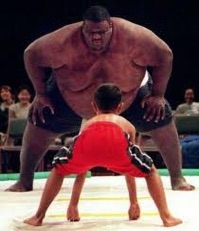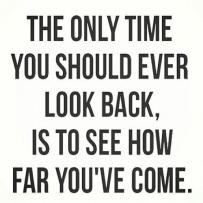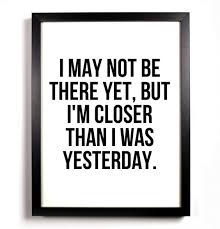 It’s estimated that most of us make New Year’s resolutions each year, but most of us don’t make it to February with our goals intact because research shows only 8% of people achieve them.
It’s estimated that most of us make New Year’s resolutions each year, but most of us don’t make it to February with our goals intact because research shows only 8% of people achieve them.
If you truly want to get results, the secret is to keep your New Year’s resolutions small and simple and focus on incremental change.
Setting small, attainable goals throughout the year, instead of a singular, overwhelming goal on January 1 can help you reach whatever it is you want to achieve.
Set SMART (Specific, Measureable, Attainable, Relevant and Time-Bound) goals that motivate you and write them down to make them feel tangible.
Then plan the steps you must take to realize your goal, and cross off each one as you work through them.
More than likely, the one thing that’s been preventing you from accomplishing your biggest goals is that you’re not thinking small enough.
 You read it right: You aren’t thinking SMALL enough.
You read it right: You aren’t thinking SMALL enough.
This is completely different than breaking a goal down into smaller pieces – start with a small goal.
If your goal is to “lose 20 lbs. change your mindset to eating one healthy dinner this week. If your goal is to “start a business, change it to interview one business owner in the next week. Have you ever said you can’t “find the time” to do something? Nobody finds time, we choose time.
The reasoning behind focusing on small goals is that you need momentum, and nothing builds momentum like getting small consistent successes.
The purpose of these smaller goals is not to get you closer to your goal, but to develop the belief that you can accomplish goals, not just steps to reaching a goal.
Suggested Goal Setting 101 (Revised)
1. Review all the goals you’ve set in the past, but didn’t accomplish.
2. Identify ONE goal from that list that you’d still like to accomplish.
3. Define a related small goal – one that you can accomplish in 3-7 days.
4. Take action and complete it.
5. Pick another small goal and complete it.
7. Complete 3-5 mini-goals making each one a little bigger than the one before it.
8. Now go after your big goal – It’s much easier to get up a steep hill with momentum
Get Up, When You Slip Up
Expect to get off track periodically. It isn’t whether you get knocked down, it’s whether you get back up. Don’t let temporary failures turn into excuses for giving up. Just acknowledge the set back and recommit to your goal.
Harvard researcher Teresa Amabile found that the single most powerful workplace motivator was small, daily progress. Her research also uncovered that the most damaging thing to results was experiencing setbacks. If you can facilitate progress you facilitate better results. It’s just like the power of momentum that we see in sports all the time.
 You can manufacture your own momentum to score a few daily wins. This is important for you to do because your confidence is either lifted or dragged down depending on your ability to make progress.
You can manufacture your own momentum to score a few daily wins. This is important for you to do because your confidence is either lifted or dragged down depending on your ability to make progress.
When you make progress, there is something at work that psychologists refer to as goal gradient. It refers to the fact that the closer we get to something, the harder we are willing to work to achieve it.
If you’ve ever walked your dog around the block and he speeds up as you get closer to home, you’ve seen goal gradient in action. It’s the very reason online games have different levels and rankings built into them. The key isn’t just progress, its perceived progress.
This research confirms that to a large extent we control our motivation through incremental visible progress (baby steps) in goal setting. 
Progress drives motivation, which in turn drives greater future progress.
This is why you need to ditch your big goals and focus on achieving small daily wins.
10 years ago, a student at Harvard invited 5 people over to his dorm room to discuss a business opportunity. Only 2 of the 5 people showed up. Today those two people are Billionaires: Dustin Moskovitz $9.9 Billion and Eduardo Saverin $5.8 Billion. And the guy they met that night? Mark Zuckerberg, CEO of Facebook, whose current net worth is: $35.7 Billion.
Sometimes there’s nothing more expensive than a missed opportunity.
